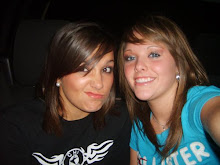***
A Maternity Hospital is a very special place. This is the place where you meet your child for the very first time.
Even if coming as a simple visitor, you can feel a peculiar buzz, a feeling of tension, of pain and happiness; nurses in a hurry, round bellies showing up around every corner, a blushing and restless mother-to-be…..this is a picture of day to day life at the Maternity Hospital in Sibiu.
The wards are clean, colourful, and the new mothers have their little ones next to them on the bed or sleeping in their separate cribs. This is what is called “rooming in”, in other words, the baby joins the mother right after birth. Due to lack of equipment not all maternity units can offer this facility to mother and child.
"The infant has to get close to its mother right after birth" - said Cristina Chiotan, UNICEF Health Programme Consultant. "It is recommended that the baby is put on the mother’s breast immediately after birth to hear the mother’s heart beat and feel the heart rhythm that the baby has been hearing for 9 months. That’s how the mother and child get attached to each other and, when they are together all the time, the mother can see what the baby is doing and she cans breastfeed whenever she has to".
Maria Popica is 24 years old but you could easily take her for 20. She is cheerful and very talkative. She gave birth in November, before she was due, to twin boys, Mihai and Gabriel. In the beginning she was hesitating to breastfeed. She had doubts if they were strong enough to suck or if she would have enough milk to feed them both. They are unbelievably small, two tiny little bodies in a transparent, closely monitored box.
"It is more difficult to breastfeed a premature child. That’s why we need well-trained staff to be there for the mothers and show them how to breastfeed and to encourage them" explained Livia Ognean.
"The same with the C section delivery, when the mother and the child are in intensive care, it is difficult as well".
The children who are exclusively breastfed for a long period of time are not only better fed. They are emotionally balanced; they have better social skills and a higher IQ. Breastfeeding helps prevent a number of serious adult conditions such as obesity and diabetes. It helps mother to recover faster and easier after giving birth and it helps prevents breast cancer and cervical cancer.
In theory, things are quite simple. Lactation is a physiological process which starts immediately after delivery; it is the cheapest and the best way to feed your new born. None of the artificial milk formulas have the same quality as mother's milk.
Nevertheless, not all mothers choose to breastfeed their baby in the first months of life.
"There are many obstacles, the doctor said. The battle is being fought at home, with the family and with the family physicians that don’t encourage the mother to breastfeed. It is very frustrating to fight this battle here, to think you’ve almost won and see the mother after a while who tells you that she no longer breastfeeds because my family physician told me my milk is not good". That is why we need support. UNICEF helped us with training courses on breastfeeding promotion for family physicians and for the community nurses who work with financially challenged large families who have little access to doctors.
Nonetheless, sometimes, the mother herself refuses to breastfeed. They are afraid of pain and some don’t do it for esthetic reasons. Most of the time, the mother who wants to give the child away refuses to breastfeed it. "Some cases are more complicated: unwanted pregnancy, very young women or women coming from socially and economically challenged families. But, you know, when they have their baby to their breast something happens ... I can’t describe it in words ... something, like a miracle. They find the courage to take the baby home and give up the whole idea of giving him or her away. We always try to encourage them, to explain that it is much better for them and for the baby and they are generally quite open to our suggestions". said Mrs. Livia Bârsan, the head nurse.


No comments:
Post a Comment